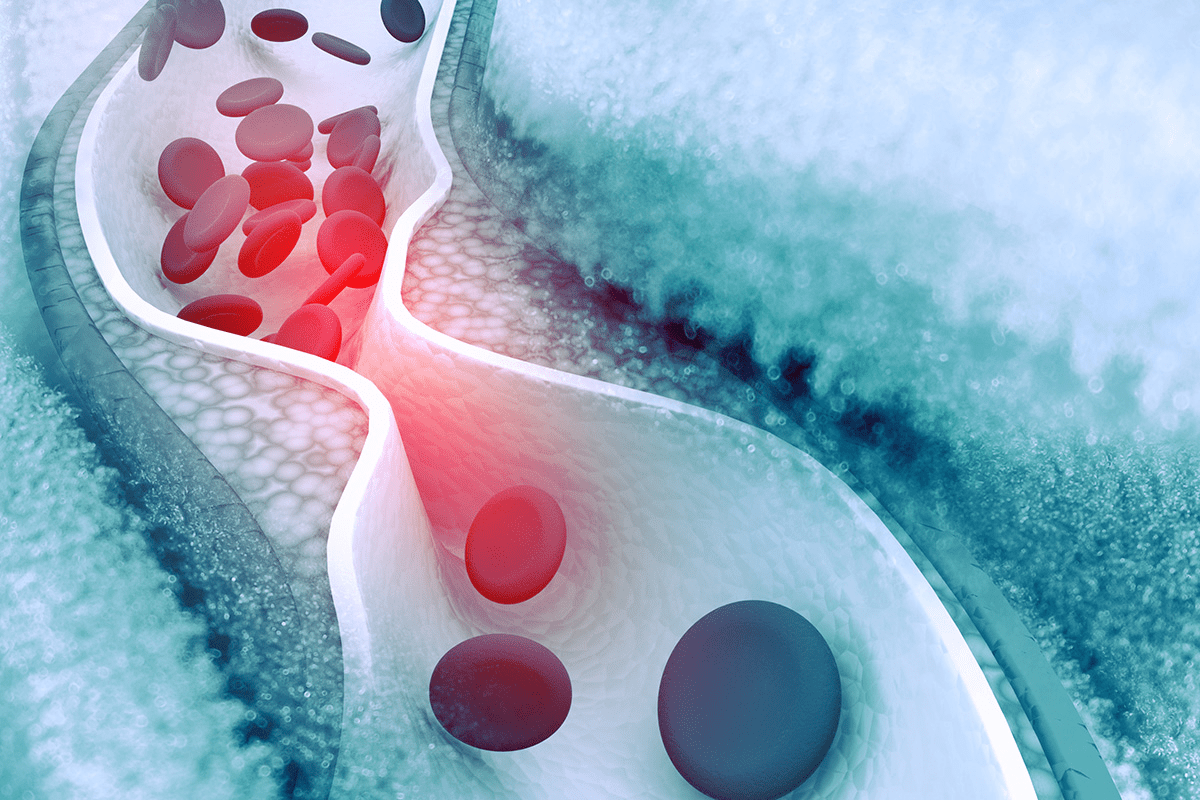Last Updated on November 27, 2025 by Bilal Hasdemir

For cancer patients, a strong immune system is key to fighting the disease and recovering. At Liv Hospital, we focus on giving our patients natural ways to boost their immunity. Studies show that certain nutrients, like zeaxanthin in some plants, can make T cells more effective against cancer.
We know that a strong immune response is essential for health, even more so during and after cancer treatment. Our care is centered on our patients, aiming to give them the best ways to stay healthy. We use the latest research on natural ways to boost immunity.
Key Takeaways
- Evidence-based natural strategies can enhance immunity in cancer patients.
- Nutrients like zeaxanthin have been shown to improve T cell function.
- A robust immune system is vital for cancer patients’ overall health.
- Liv Hospital provides patient-centered care with internationally recognized expertise.
- Our approach incorporates the latest research on natural immunity boosters.
Understanding the Immune System’s Role in Cancer
The immune system is key in fighting cancer. It uses different cells and ways to find and kill cancer cells. This is a complex process.
How the Immune System Fights Cancer Cells
The immune system has many ways to fight cancer. It uses immune cells like T cells and natural killer cells to destroy cancer cells. Immunotherapyhelps the immune system fight cancer better.
Studies show the immune system can learn to fight cancer. It can sometimes stop tumors from growing. Knowing how it adapts is important for new treatments.
T Cells: Your Body’s Natural Cancer Fighters
T cells are important white blood cells. They can tell self from non-self cells, helping fight cancer. How to increase T cells to fight cancer naturally is a common question. It involves lifestyle changes and nutrition.
| Method | Description | Benefit |
|---|---|---|
| Nutritional Support | Ensuring adequate intake of vitamins and minerals | Enhances T cell function |
| Lifestyle Changes | Managing stress and getting regular exercise | Boosts overall immune function |
| Targeted Supplements | Using supplements like vitamin C and D | Supports immune cell production |
Knowing how the immune system fights cancer is empowering. It helps patients take part in their treatment. By learning how to increase T cells to fight cancer naturally and understanding does cancer weaken the immune system, patients can manage their cancer better.
How Cancer and Treatments Affect Your Immune System
It’s important to know how cancer and treatments affect the immune system. This knowledge helps in finding ways to support patients better. Cancer and treatments can weaken the immune system, making patients more likely to get sick.
Does Cancer Weaken the Immune System?
Cancer can weaken the immune system by slowing down immune cells. These cells, like T cells and natural killer cells, are key in fighting cancer. The tumor environment also makes it harder for the immune system to work well.
Table 1: Effects of Cancer on Immune Cells
| Immune Cell Type | Effect of Cancer |
|---|---|
| T Cells | Suppressed activity and proliferation |
| Natural Killer Cells | Reduced cytotoxic activity |
| Dendritic Cells | Impaired maturation and function |
The Impact of Chemotherapy on Immunity
Chemotherapy is a key part of cancer treatment but weakens the immune system. It targets fast-growing cancer cells but also affects immune cells. This can lower white blood cell counts, making patients more prone to infections.
Does chemotherapy weaken your immune system? Yes, chemotherapy can weaken the immune system. The extent of this weakening depends on the type and dose of chemotherapy.
Biologic Therapies Like Remicade and Immune Function
Biologic therapies, like Remicade, treat various conditions, including some cancers and autoimmune diseases. They are effective but also affect the immune system. Remicade reduces inflammation by blocking TNF-alpha, but this can raise the risk of infections.
Patients on Remicade and similar therapies should be aware of the risks. They should talk to their healthcare provider about how to boost their immune system while on Remicade.
The Best Immune System Booster for Cancer Patients: A Comprehensive Approach
Boosting the immune system is key for cancer patients. A full plan can offer the needed support. Cancer and its treatments harm the immune system, so patients need good immune boosters.
Why Cancer Patients Need Specialized Immune Support
Cancer patients need special immune help to fight off cancer and its treatments. Immunotherapy, like what Liv Hospital’s website talks about, is a way to boost the immune system.
The immune system is key in fighting cancer cells. But, treatments like chemotherapy can weaken it. So, it’s important to find ways to support and boost the immune system during treatment.
Balancing Conventional Treatment with Natural Support
It’s important to mix traditional cancer treatment with natural support to keep the immune system healthy. This includes:
- Eating a balanced diet
- Using evidence-based supplements
- Managing stress
- Getting enough rest and exercise
By using these methods together, cancer patients can get full support for their immune system.
Evidence-Based Approaches to Immune Enhancement
There are proven ways to boost the immune system in cancer patients. These include:
- Nutrient-dense diet: Eat foods full of vitamins, minerals, and antioxidants.
- Plant compounds: Some plant-based compounds can boost the immune system.
- Targeted supplementation: Supplements like vitamin C and D can help the immune system.
By adding these strategies to their treatment plan, cancer patients can actively support their immune system during treatment.
Immune Booster #1: Nutrient-Dense Diet for Cancer Patients
Eating a diet full of fruits, vegetables, whole grains, and lean proteins is key for cancer patients. This diet gives the body the nutrients it needs to keep the immune system strong. It’s very important during cancer treatment.
Key Components of an Immune-Supporting Diet
An immune-supporting diet for cancer patients should have foods rich in vitamins, minerals, and antioxidants. Vitamin C, found in citrus fruits and berries, is key for making white blood cells. Zinc, found in lean meats and nuts, helps activate immune cells.
Other important foods include:
- Omega-3 fatty acids in fatty fish, which fight inflammation.
- Fiber-rich foods like whole grains and vegetables, which help the gut.
- Antioxidant-rich foods such as berries and leafy greens, which protect cells.
Foods to Emphasize and Avoid During Cancer Treatment
During cancer treatment, focus on nutrient-dense, easy-to-digest foods. Foods high in protein like lean meats, fish, and eggs help keep strength up. Foods rich in fiber also support digestive health.
On the other hand, avoid or limit certain foods:
- Processed foods high in sugar and unhealthy fats.
- Raw or undercooked foods that may pose a risk of infection.
- Foods high in salt, which can lead to dehydration.
Practical Meal Planning for Optimal Immunity
Practical meal planning means creating a balanced diet that’s nourishing and easy to follow during cancer treatment. Here are some tips:
- Eat small, frequent meals to keep energy up.
- Add a variety of colorful fruits and vegetables to your diet.
- Choose whole grains over refined grains.
- Drink plenty of water all day to stay hydrated.
By following these dietary tips, cancer patients can boost their immune system. This can help their body fight cancer better. It’s about making smart food choices that support health and well-being during treatment.
Immune Booster #2: Plant Compounds That Enhance T Cell Function
Looking into natural ways to boost cancer immunity, we find plant compounds like zeaxanthin and curcumin. They help increase T cell activity. These substances have shown to have immune-modulating effects, which could benefit cancer patients.
Zeaxanthin and Its Impact on T Cell Activity
Zeaxanthin is a carotenoid found in fruits and vegetables. It supports immune function. Studies suggest it can boost T cell activity, key in fighting cancer.
Zeaxanthin reduces oxidative stress and inflammation, helping T cells. Its antioxidant properties protect T cells from damage. This supports their fight against cancer.
Curcumin as an Immune Modulator
Curcumin, from turmeric, has been studied for its immune benefits. It enhances T cell function and modulates the immune response. This makes it a possible treatment for cancer patients.
Curcumin works by regulating cytokines and boosting T cell activity. It helps maintain a balanced immune response. This could improve cancer patient outcomes.
How to Increase T Cells to Fight Cancer Naturally
To naturally boost T cells, change your diet and lifestyle. Eating foods rich in zeaxanthin and curcumin is a good start.
Other ways include living a healthy lifestyle, managing stress, and getting enough sleep. Supplements like vitamin C and D, along with plant compounds, can also help.
Here’s a summary of key plant compounds and their effects on T cell function:
| Plant Compound | Source | Effect on T Cells |
|---|---|---|
| Zeaxanthin | Fruits and vegetables (e.g., leafy greens, corn) | Enhances T cell activity, reduces oxidative stress |
| Curcumin | Turmeric | Modulates immune response, enhances T cell function |
| Other Carotenoids | Various fruits and vegetables | Supports immune function, antioxidant effects |
By using these plant compounds, patients can boost their immune function. This can improve their overall health and well-being.
Immune Booster #3: Targeted Supplementation Strategies
Targeted supplements can help support the immune system of cancer patients. A balanced diet is key, but some people might need extra nutrients to boost their immune response.
Vitamin C and D for Enhanced T Cell Function
Vitamins C and D are vital for a strong immune system. Vitamin C acts as an antioxidant, protecting cells. Vitamin D helps control immune cells, including T cells.
- Vitamin C-rich foods include citrus fruits, strawberries, and bell peppers.
- Vitamin D can be found in sunlight, fatty fish, and fortified dairy products.
Studies show that enough vitamins C and D support the immune system during cancer treatment. Some patients might need supplements, due to limited diet or deficiencies.
Ginseng for Immune Modulation During Cancer Recovery
Ginseng has been used for its immune benefits. It can boost immune function by increasing immune cell production.
Ginseng offers several benefits:
- It boosts natural killer cell activity.
- It supports antibody production.
- It reduces fatigue and improves overall health.
Ginseng comes in capsules, teas, and extracts. Always talk to a healthcare provider before using it, during cancer treatment.
Minerals That Support Recovery and Immunity
Minerals like zinc, selenium, and iron are essential for immunity. Zinc helps activate immune cells. Selenium acts as an antioxidant. Iron is key for hemoglobin, which carries oxygen.
| Mineral | Role in Immunity | Food Sources |
|---|---|---|
| Zinc | Supports immune cell activation | Oysters, beef, chicken |
| Selenium | Antioxidant properties | Brazil nuts, fish, turkey |
| Iron | Essential for hemoglobin production | Red meat, spinach, fortified cereals |
Getting enough of these minerals through diet or supplements can aid in immune recovery after cancer treatment.
Immune Booster #4: Physical Activity and Immune Resilience
Cancer patients can greatly benefit from physical activity. It plays a key role in supporting their immune function. Regular exercise not only boosts overall health but also strengthens the immune system. We will look into how exercise can be adapted for cancer patients during treatment.
Exercise Guidelines for Cancer Patients
It’s vital for cancer patients to follow exercise guidelines that are safe and effective. Consulting with healthcare providers before starting any new exercise is essential. They can guide on the best types and levels of physical activity based on the patient’s condition and treatment plan.
Cancer patients are encouraged to do a mix of aerobic exercises, strength training, and flexibility exercises. Aerobic activities like walking or swimming improve heart health. Strength training helps keep muscle mass, while flexibility exercises like yoga improve range of motion and reduce stress.
- Start with low-intensity activities and gradually increase as tolerated.
- Choose exercises that are enjoyable to improve adherence.
- Consider group classes or online resources for motivation and support.
How Movement Enhances Natural Killer Cell Activity
Physical activity boosts the activity of natural killer (NK) cells. These cells are vital in the immune system’s fight against cancer. Regular exercise can improve NK cell function, helping the body fight cancer cells better.
Studies show that exercise increases NK cell circulation and other immune components. This makes the immune system more effective at targeting cancer cells. This is key for patients undergoing treatments that weaken the immune system.
Balancing Rest and Activity During Treatment
While exercise is beneficial, balancing it with rest is equally important. Treatment can be taxing, and rest is needed for recovery. Listening to the body and adjusting activity levels based on how one feels is key.
Patients should pay attention to their body’s signals, like fatigue or pain. Adjusting the exercise routine based on these signals is important. Rest days and prioritizing sleep help maintain this balance.
By adding physical activity to their lifestyle, cancer patients can boost their immune resilience and overall well-being during and after treatment.
Immune Booster #5: Stress Management and Immune Function
Chronic stress weakens the immune system, making it key in cancer care. Stress triggers our “fight or flight” response, releasing cortisol. While these hormones help us face threats, too much can weaken our immune system. This makes it harder to fight off infections and cancer cells.
The Connection Between Stress and Immune Suppression
Research shows chronic stress greatly affects immune function. People under stress have fewer lymphocytes, the white blood cells that fight infections. This is a big problem for cancer patients, who already have a weakened immune system.
Stress affects the immune system in many ways. It can impact the HPA axis and the sympathetic nervous system. Knowing how stress works is key to finding ways to manage it and protect the immune system.
Evidence-Based Stress Reduction Techniques
There are many ways to reduce stress that have been proven to work. These include:
- Mindfulness meditation: This practice helps focus on the present to reduce stress and anxiety.
- Yoga: It combines physical postures, breathing, and meditation to reduce stress and improve well-being.
- Deep breathing exercises: Simple and effective, deep breathing calms the mind and body.
- Progressive muscle relaxation: This technique involves tensing and relaxing muscles to release tension.
These techniques can improve mental and physical health, including immune function. By adding them to their daily routine, cancer patients can better manage stress and support their well-being.
Implementing Mind-Body Practices During Cancer Treatment
Adding mind-body practices to cancer treatment needs planning and commitment. But the benefits are worth it. Here are some tips to get started:
- Start small: Begin with short sessions of mindfulness or deep breathing exercises and gradually increase the duration as you become more comfortable with the practices.
- Find a qualified instructor: Look for yoga or meditation classes designed for cancer patients.
- Be consistent: Aim to practice stress reduction techniques daily, even if it’s just for a few minutes.
- Combine with other therapies: Mind-body practices can complement other cancer treatments, such as chemotherapy and radiation therapy.
By adding stress management to their care plan, cancer patients can support their immune function and overall health. As we explore more immune boosters, managing stress is a key part of supporting immune function during cancer care.
Immune Booster #6: Sleep Optimization for Immune Recovery
For cancer patients, quality sleep is more than rest. It’s key for immune function. During treatment, the body faces a lot of stress. So, getting enough sleep is vital for health and recovery.
How Sleep Affects T Cell Production and Function
Sleep is important for the immune system, including T cells. Lack of sleep can lower T cell activity. This makes it harder to fight cancer cells. But, enough sleep keeps T cells working well, helping the body defend itself.
T cells are a key part of the immune response. Sleep helps the body make cytokines, proteins that fight infections and inflammation. Good sleep means the immune system can better handle cancer and its treatment.
Overcoming Sleep Challenges During Cancer Treatment
Cancer treatment can mess with sleep due to pain, discomfort, or anxiety. To beat these issues, start a bedtime routine. This could be reading, meditation, or gentle stretches.
Make your bedroom sleep-friendly. It should be dark, quiet, and cool. Stay away from screens before bed because their blue light can mess with your sleep cycle.
Creating a Sleep Routine That Supports Immunity
Stick to a sleep schedule to improve sleep quality. Go to bed and wake up at the same time every day. This helps your body’s clock stay in sync. Also, avoid big meals before bed and relax in the evening.
By focusing on sleep and using these tips, cancer patients can boost their immune system. Good sleep, along with other immune-boosting actions, helps patients deal with cancer treatment better.
Immune Booster #7: Hydration and Detoxification Support
Drinking enough water is key to keeping your immune system strong during cancer treatment. It helps your body get rid of toxins naturally. This is important for your immune system to work well.
The Role of Hydration in Immune Function
Drinking water helps your body get rid of waste and brings nutrients and oxygen to cells. Even a little dehydration can weaken your immune system. This makes it harder to fight off sickness and recover from treatments.
Key aspects of hydration in immune function include:
- Maintaining the integrity of mucous membranes
- Supporting the lymphatic system’s function
- Aiding in the production and circulation of immune cells
Supporting Your Body’s Natural Detoxification Processes
Your body has ways to get rid of toxins and waste. Drinking enough water and eating well can help your immune system. This improves your overall health.
Detoxification support strategies include:
- Drinking plenty of water
- Consuming a diet rich in fruits, vegetables, and whole grains
- Avoiding processed foods and environmental toxins
Practical Hydration Strategies During Treatment
There are simple ways for cancer patients to stay hydrated. Drink water often, eat hydrating foods, and avoid drinks that dehydrate you.
Tips for staying hydrated:
- Drink at least 8-10 glasses of water per day
- Include hydrating foods like watermelon, cucumbers, and celery in your diet
- Avoid caffeinated and sugary drinks that can act as diuretics
By focusing on hydration and detox, cancer patients can boost their immune system. This helps them feel better during treatment.
Conclusion: Creating Your Personalized Immune-Boosting Plan
Cancer patients can greatly benefit from boosting their immune system. By adding the best immune system boosters to their treatment, they can improve their health and strength.
To naturally boost immunity, it’s key to use proven methods. This includes eating a diet rich in nutrients, taking specific supplements, staying active, managing stress, getting enough sleep, and drinking plenty of water. Always work with your doctor to make a plan that fits your needs.
Creating a plan that’s just for you helps tackle your specific challenges. It lets you use natural ways to boost your immune system. This can lead to better treatment results and a better life quality.
Learning how to naturally boost your immunity and adding these steps to your treatment plan is empowering. We urge you to talk to your healthcare team about these options. Together, you can make a strong, personalized plan to boost your immune system.
FAQ
How can I boost my immune system while undergoing cancer treatment?
To boost your immune system, eat a diet full of nutrients. Also, take supplements, exercise, manage stress, sleep well, and drink plenty of water. This approach can help during cancer treatment.
Does chemotherapy weaken the immune system?
Yes, chemotherapy can weaken your immune system. It reduces white blood cells, like T cells, which fight cancer.
How can I increase T cells to fight cancer naturally?
Eat foods with zeaxanthin and curcumin, like plants. Also, take vitamins C and D, and minerals that boost immunity. Regular exercise and stress management help too.
What are the best foods to eat to boost my immune system during cancer treatment?
Eat foods rich in nutrients like fruits, veggies, whole grains, lean proteins, and healthy fats. Focus on antioxidants, fiber, and omega-3s for immune support.
Can I take supplements while on Remicade or other biologic therapies?
Always talk to your doctor before taking supplements with Remicade or other biologics. They might interact or cause side effects.
How does stress affect my immune system during cancer treatment?
Stress can weaken your immune system by lowering natural killer and T cells. Try stress-reducing activities like meditation or yoga to help.
Why is sleep important for immune recovery during cancer treatment?
Sleep is key for immune recovery. It lets your body make cytokines, proteins that fight infections. Aim for 7-9 hours of sleep each night.
How can I stay hydrated during cancer treatment?
Drink lots of water, clear broths, and electrolyte-rich drinks to stay hydrated. Eat hydrating foods like watermelon and cucumbers too.
Can exercise help boost my immune system during cancer treatment?
Yes, exercise boosts your immune system by increasing natural killer and T cells. Try yoga, walking, or swimming. Always check with your doctor first.
How can I balance conventional treatment with natural support strategies?
Work with your doctor to create a plan that includes diet, supplements, exercise, and stress management. This will support your conventional treatment.
References
- University of Chicago Biological Sciences. Plant‑based nutrient fights cancer. https://biologicalsciences.uchicago.edu/news/plant-based-nutrient-fights-cancer
- (Authors). Title. PMC. https://pmc.ncbi.nlm.nih.gov/articles/PMC7328673/
- Cancer Research UK. Vitamins, diet & supplements (complementary/alternative therapies). https://www.cancerresearchuk.org/about-cancer/treatment/complementary-alternative-therapies/individual-therapies/vitamins-diet-supplements








